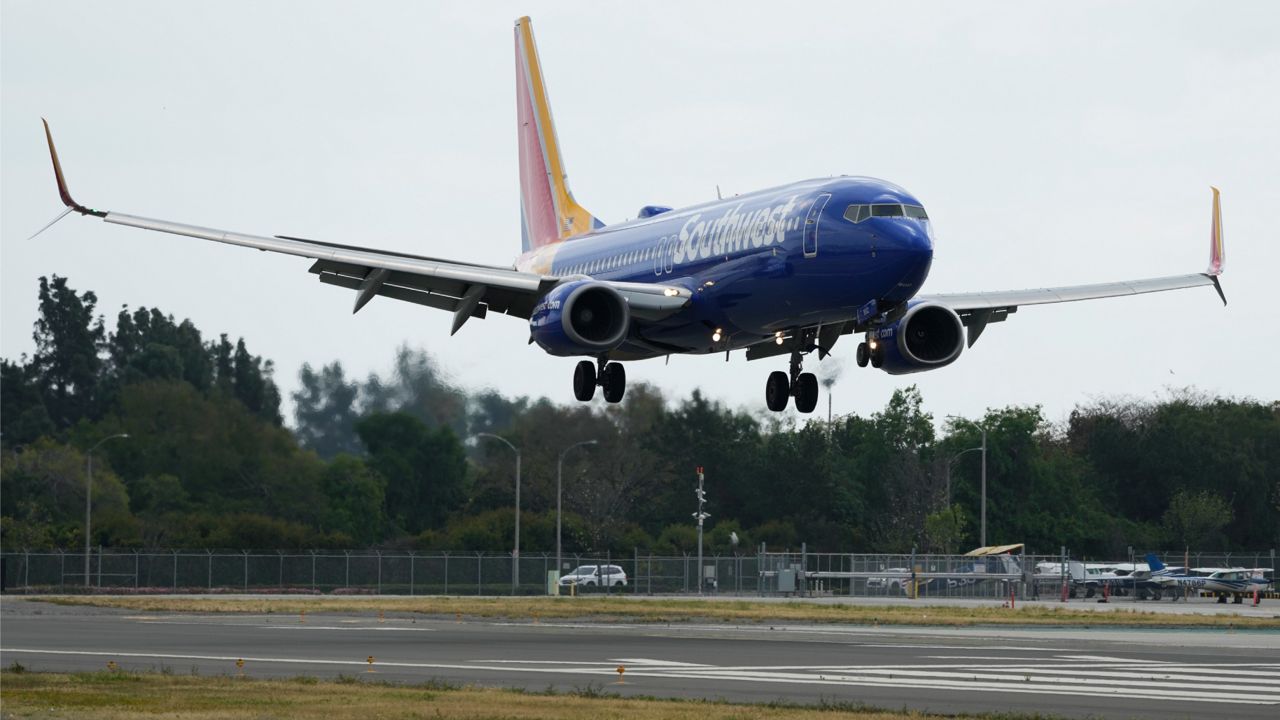The Department of Transportation is proposing a ban on airlines charging “junk fees” for families who want to sit together on flights if adjacent seats are available when they book tickets.
The proposed regulation, backed by congressional authorization from earlier this year, will enter a public comment period before being implemented.
The Biden administration called on airlines to voluntarily drop the fees last year, but according to a DOT dashboard only four of the ten largest airlines currently guarantee adjacent seats for children ages 13 and under and an “accompanying adult” for no additional costs: Alaska Airlines, American Airlines, Frontier Airlines and JetBlue.
Allegiant Air, Delta, Hawaiian Airlines, Southwest, Spirit and United currently don’t guarantee such arrangements, according to the DOT.
“Many airlines still don’t guarantee family seating, which means parents wonder if they’ll have to pay extra just to be seated with their young child. Flying with children is already complicated enough without having to worry about that,” Transportation Secretary Pete Buttigieg said in a statement on Thursday. “The new rule we’re proposing today, which would ban airlines from charging parents a fee to sit with their children, is another example of the Biden-Harris Administration using all the tools at our disposal to lower costs for families and protect consumers from unfair practices.”
The Biden administration estimates it could save a family of four $200 per roundtrip, pegging fees to swap seats at $25 per seat.
“Parents who decide not to pay family seating junk fees are stuck figuring out how to sit next to their children in the midst of the hectic boarding process. This can lead to problems for the other passengers on the flight,” the DOT said in a statement. “Once boarded, airlines may ask these passengers to ‘voluntarily’ forfeit their seats, which they may have paid for in advance, and move to a less desirable seat so that a parent and child can sit together. If passengers choose not to swap seats, they may be seated next to an unsupervised child, causing stress for the child, parent, and surrounding travelers.”
The proposed rule would require airlines to guarantee parents or accompanying adults would be able to sit next to children ages 13 or under, require airlines to seat parents next to their children for free within 48 hours of booking and mandate refunds, free rebooking and other options when family seating is not available. It would also require airlines to advertise fee-free family seating and impose penalties on the airline for each violation of the rule.
“The proposal defines adjacent family seating as seats next to each other in the same row and not separated by an aisle,” the DOT said. “In situations where it is impossible to provide adjacent seating for multiple young children, airlines would be required to seat them across the aisle from, directly in front of, or directly behind the parent or accompanying adult.”
Airlines would also not be allowed to restrict family seating to one class of service.
It’s part of a broader effort by President Joe Biden to tackle “junk fees” Americans pay across a variety of industries. One rule already affecting airlines is a rule guaranteeing automatic cash refunds when flights are canceled or significantly delayed, checked baggage is significantly delayed or when extra services like inflight WiFi are not provided.
A rule requiring companies disclose change fees and baggage fees upfront “to ensure consumers can better understand the true cost of their travel” was in place, but a federal appeals court temporarily blocked it on Monday after a lawsuit by an industry trade group, Delta, American Airlines, United, JetBlue, Hawaiian Airlines and Alaska Airlines.
“The airline industry lobby is trying to tie this up with lawsuits, but we will not back down from protecting passengers,” Buttigieg wrote on social media on Tuesday. “Airlines are simply wrong to argue that merely having to disclose their fees would ‘irreparably harm’ them. It’s common sense.”
In other areas of the consumer market, the Biden administration in January proposed a new rule that would limit banking overdraft fees. And in October, the Federal Trade Commission began the process to require hotels, concert ticket sellers, car rental providers and other companies to openly advertise hidden “junk fees” as consumers shop.
“Folks are tired of being taken advantage of and being played for suckers,” Biden said in October.




